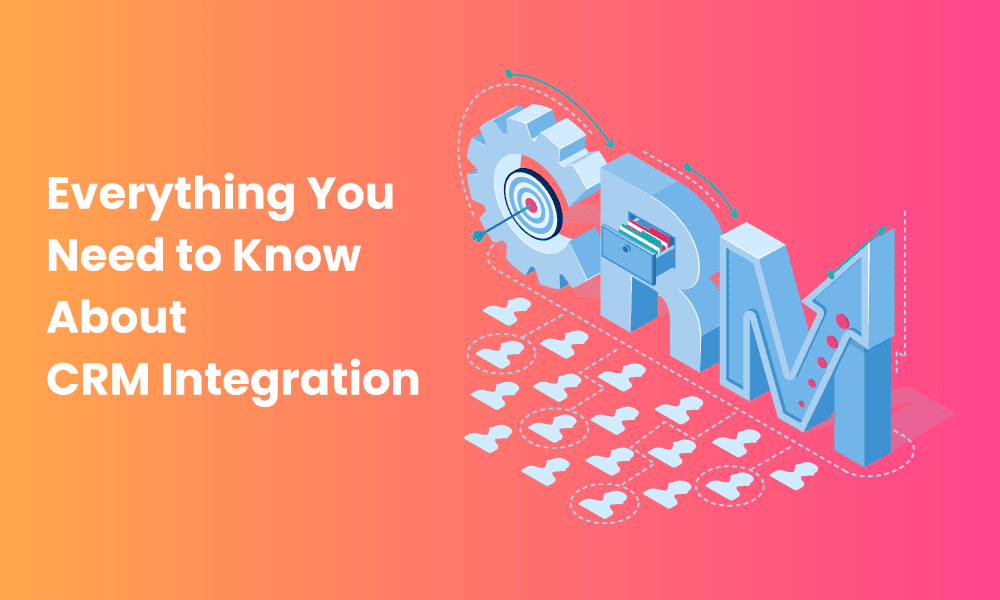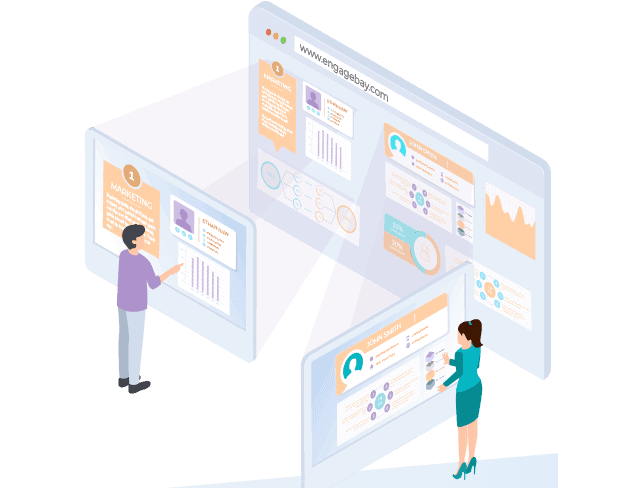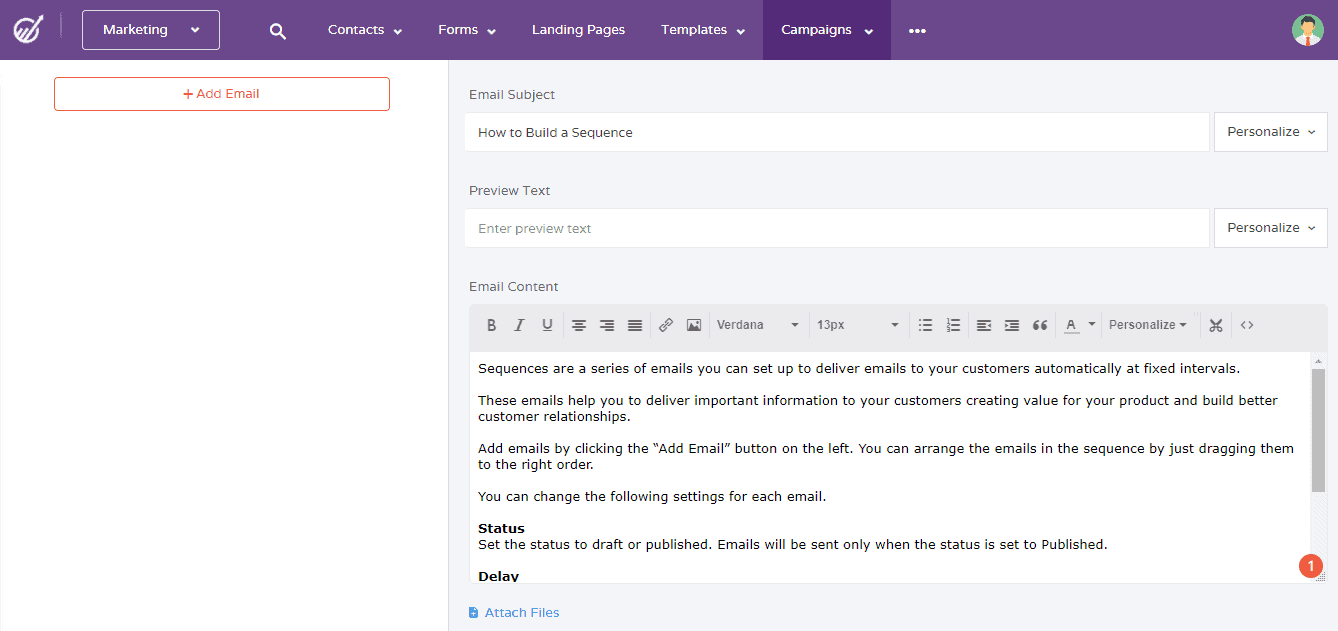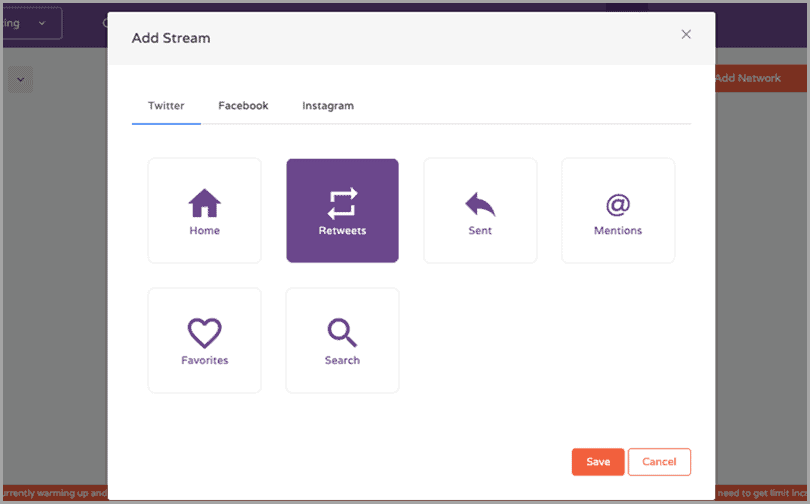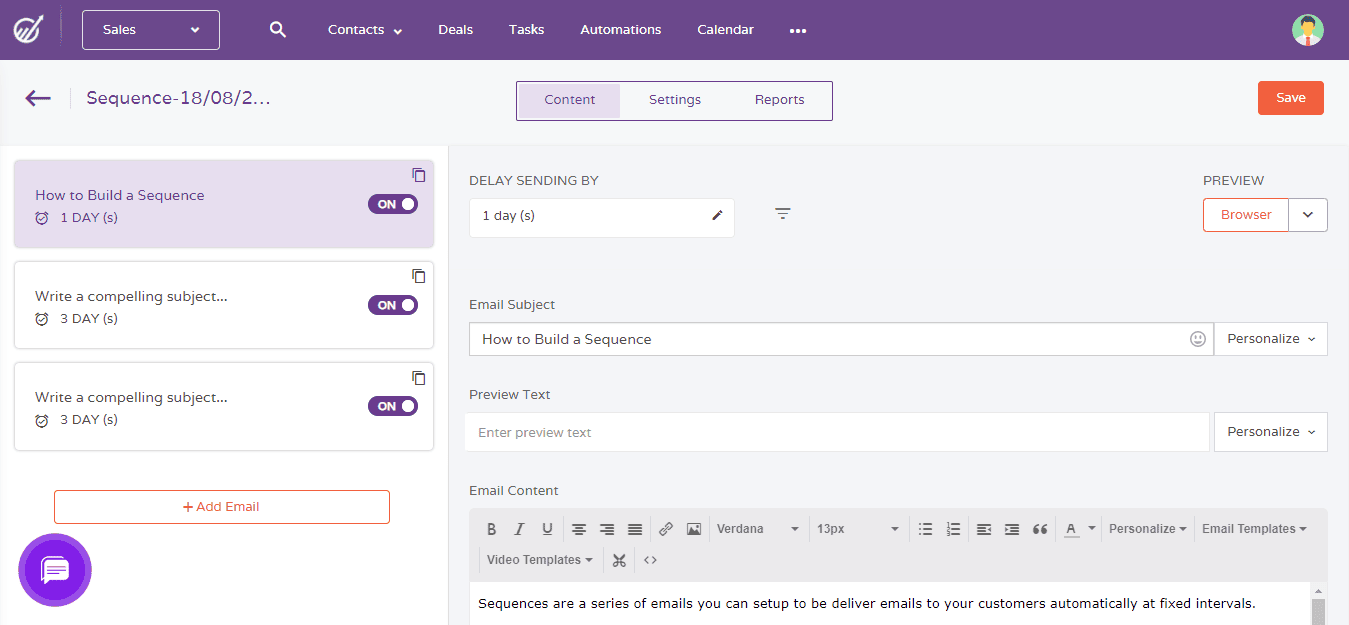CRM integration can help you achieve your ‘customer delight’ goals faster.
CRM stands for Customer Relationship Management. CRMs are software platforms that allow you to build and manage relationships with your customers, including interactions across multiple channels. CRM integration is the act of integrating CRM tools into other systems that are unrelated but still can make the CRM work better.
CRM integration is vital for managing customer data with accuracy and with the most efficiency possible.
In this blog post, we will tell you everything you need to know about CRM integration and how this one thing can completely change your business for good.
We’re talking increased sales, happier customers, and far better ROI on your CRM investment.
Read on!
Table of Contents
What is CRM?
Customer relationship management or CRM is the process of managing all sales, marketing, customer service, and general business data related to your customers. CRM software is a collection of applications for sales, marketing, and customer support.
CRM integrates across your company’s digital tools to help you run your business in much smarter ways by streamlining operations, building customer loyalty, and driving sales.
CRM solutions are designed to consolidate a company’s data from various departments such as sales, marketing, finance, and customer service into a single system that can be accessed from any web-enabled device. CRM also enables users to not only work with data but also take action across departments and functions within an organization so all teams can work together to improve the customer experience.
CRM is becoming more integral to everyday business operations, as companies learn to make the most of CRM solutions for tasks ranging from lead generation, website personalization, marketing automation, sales forecasting, account management, and more.
If you want a quick visual explanation of what CRM is, watch this video by software reviews platform G2:
What is CRM Integration?
CRM integration is the act of connecting CRM to other systems, such as email, accounting, manufacturing management, or inventory management tools.
CRM integration offers an expansive array of benefits for business growth. Integrated CRMs can increase organizational productivity and efficiency by bringing together all data and processes into a single place and platform.
CRM integration also improves an organization’s customer experience because the unified CRM software can serve as the central hub for all customer information, from the first point of contact to the most recent transaction.
CRM integration examples are everywhere in our daily lives today. For instance, CRM integration in banking ensures that customers receive real-time notifications when they have credit card updates or checking account transactions. CRM integrations in e-commerce companies ensure that the business owners or managers are automatically updated any time a customer leaves a negative product review.
CRM integration in healthcare ensures that CRM data is available for analysis whenever it’s needed to support key decisions about patient care or billing services. CRMs are also being used by IT departments to track bugs and feedback on product improvement from customers, streamlining the whole process of software updates.
CRMs help businesses optimize efficiency and performance through streamlined processes that are based on quality, accurate data. When integrated, CRMs can automatically connect different software modules and tools to help business owners manage the entire customer life cycle, from prospecting and lead nurturing all the way through post-purchase customer support and upselling campaigns.
Read also: What is CRM Automation? Learn all the Basics Here (Guide Blog)
How Can You Integrate CRM With Your Business Solutions?
There are several ways to take advantage of your CRM to increase profits. The following are a few common modes of CRM integration that most new-age companies use:
Email Integration
CRM email integration is a simple and effective way of giving business owners complete access to use CRM data in their email marketing. This integration allows CRM users to insert customer records from the CRM into their email templates, and modify CRM data based on the responses of customers to their email campaigns and newsletters.
CRM email integration also provides CRM users the power to create targeted campaigns for specific groups (segments) of customers using the latest customer data recorded by the CRM.
This integration also gives sales managers the power to track all customer responses over email, allowing them to have a more active role in customer engagement.
CRM email integration not only provides CRM users with comprehensive access to CRM data for campaign targeting, it also assists them in creating effective marketing strategies by providing up-to-date information about how their clients are responding to different kinds of marketing channels and products. These strategies can be used by businesses across all industries, so email integration is a very powerful and versatile solution for CRM users.
Calendar Integration
CRM calendar integration helps entrepreneurs and managers generate more revenue by being able to plan and execute their customer engagement strategies more effectively and make better-informed decisions about their events and appointments.
This is a powerful and versatile solution as calendar events, appointments, and travel dates can all be accessed from one platform. CRM integration with the calendar allows CRM users to not only manage client engagements but also plan and organize their day-to-day activities. This integration is often used by sales managers, marketing professionals, small business owners, entrepreneurs, students, freelancers, etc.
CRM integration with the calendar enables all the CRM users in the organization to plan their day-to-day activities efficiently without having to switch between multiple platforms.
Social Media Integration
When CRM and social media tools are integrated, CRM can be much more effective.
CRM integration with social media channels is a powerful way to communicate with your customers and establish meaningful relationships. CRM-social media integration includes syncing CRM data and social media updates about customers to get a better idea of how customers interact with your website, landing pages, and social posts.
This integrated data includes information such as the number of visits, pages viewed, items added to the basket, and other valuable data points, which help managers and sales reps make better decisions, quicker.
Integrating CRMs with social media channels provides valuable customer insights, and improves CRM data quality. CRM integration with social media channels can help the CRM develop a more accurate and complete profile of the customers’ buying history, product interests, demographics, personal attributes and preferences, online search and shopping behavior, etc.
CRMs can also be directly integrated to offer functionality such as direct contact buttons on social profiles for instant communication via email, telephone, SMS, chatbot, or Live Chat.
Also, integrating your CRM with your social media profiles enables you to publish social posts to all the different accounts at once, without having to use another tool for this task. This saves a lot of time and helps entrepreneurs and marketers manage all their social media marketing from one integrated dashboard, with key customer data at hand.
Read also: Everything You Need to Know About CRM Integration
Marketing Automation Integration
CRM marketing automation integration is the key to modern marketing success. CRM integration makes it possible for marketing software and customer data tools to communicate with each other.
This integration is important because it helps you keep track of all customer data in one place. For example, if you have a CRM system and an email marketing tool, once you’ve set up this CRM integration, your CRM will be able to tell your email service provider if someone has unsubscribed from any of your emails so that they don’t get sent any more emails.
CRM integration with marketing tools also enables highly targeted marketing campaigns because automated follow-up actions can be triggered by CRM activity, which means customers are always at the forefront of your marketing.
Some CRM systems come with built-in marketing automation modules without the need for a separate tool, while some CRMs require third-party apps or external integrations to take full advantage of this capability.
EngageBay offers a clean interface with CRM & marketing automation modules integrated for targeted campaigns.
Team Communication Integration
CRMs are great tools for interacting with customers, tracking important opportunities, and managing the sales pipeline. However, they usually lack one crucial element: internal communication. Traditionally, there was no way to send emails automatically from your CRM, or to get notifications across the team when certain events happen in your business (such as a new sale).
Integrated CRMs today are becoming popular because they allow team communication inside CRMs, not just between different tools. Some CRMs allow for internal emails to be sent automatically, triggered by CRM data updates. Others allow business owners and managers to assign tasks and goals related to customer updates in the CRM directly from the CRM itself.
Integrated CRMs are great because they reduce the need for manual communication across the team. When used well, it is easy enough to get all your important notifications in one place so that everyone on your team can stay up-to-date with what’s going on inside your business.
Why is CRM Process Integration Important?
CRM software providers are continually increasing the number of ways CRMs can be used in business. CRM process integration allows you to automate repetitive tasks such as update data and send emails. CRM process integration also means that your CRM is accessible from anywhere rather than it being tied to a desk or computer.
Who has access to CRM data? CRMs vary: some have open access, which can be useful when multiple members of staff need to see and edit customer details at the same time; others use roles and permissions so that different users have different levels of access depending on their role in the company.
Some CRMs allow for offline editing which will then sync up when you next go online.
All this helps a business in many ways. The key benefits of CRM process integration, especially for a small business, are as follows:
- CRM process integration makes running a business easier and more efficient for you and your employees.
- CRM process integration means that CRM data is always up to date, helping your business stay organized.
- CRM process integration gives customer service teams a one-stop solution to manage all interactions efficiently.
Integrated CRMs can provide clear reports showing how many leads, deals, and opportunities each salesperson has, allowing managers to track progress and allocate resources efficiently.
This way, the business owner or manager can easily keep track of all progress and bottlenecks.
Automating repetitive tasks and being up-to-date on the go allows entrepreneurs and business managers to reduce operational and overhead costs, keep data secure and up-to-date, and improve the revenue and bottom line.
Read also: eCommerce Integration: Do You Need It?
What are the Challenges in CRM Integration?
CRM integration challenges are constantly increasing. CRM integration requires proper tools and platforms to ensure seamless functioning, secure transfer of sensitive information, proper updates in marketing automation software, etc.
CRM systems can be very different from one company to another: they use different technologies (SOAP vs REST), transfer protocols (HTTP vs HTTPS), authentication (OAuth 2.0), digital certificates, and so on.
CRM integration will fail or succeed depending on how much CRM and marketing automation vendors comply with each other’s demands.
This problem does not affect only CRMs: there is a high chance that there will be outstanding requests and requirements for every program you integrate (billing systems, e-commerce software, software systems for any other business areas).
CRM integration sometimes will be just one link in the chain of business software integrations.
However, there’s an easy solution to these challenges in CRM integration.
Read also: Beyond Basic Branding: How Integrated Marketing Helps
How Can CRM Integration Challenges Be Addressed?
The easiest way to address the common problems in CRM integration is to find a unified, integrated CRM that does it all from the word go.
We’d be remiss if we don’t mention this here: EngageBay is the world’s most affordable all-in-one marketing automation, sales & customer support solution with a fully integrated CRM.
In fact, the story behind EngageBay is the gist of small business and startup challenges: each business owner or entrepreneur has to juggle a dozen different software tools to manage business processes efficiently, and this juggling ends up defeating the purpose of the tools.
EngageBay does it all, automatically, so you can focus on what really matters to your business.
EngageBay is CRM integration done right 🙂
If you need one holistic business solution instead of a dozen CRM integrations, EngageBay is the most affordable answer
Proof that CRM Integrations Boost Business
Numerous fast-growing companies, such as Dollar Shave Club, Apple, Youtube, and Uber make use of CRM integrations.
Nuclear Research reports that the companies using CRM get an average ROI of $8.71 for each dollar they have spent on CRM implementation.
Here are some CRM integration examples from leading brands.
Uber
CRM is one of the leading technologies in the arsenal of Uber. Uber uses CRM integration to keep track of people engaging with the platform on social media.
They use their social media CRM integration to offer quick responses to customer queries.
After the ride, Uber asks you for feedback on the driver, which is another benefit of CRM integration. Uber collects driver feedback on customers as well, and highly rated customers shown as such to new drivers.
For the safety of both drivers and passengers, Uber uses integrated CRM systems to store, track and update all data, including identity documents and the like.
Apple
If you have been using an iPhone and wish to upgrade, you can get all your personal data, such as your favorite songs, photos, etc., in the new iPhone just by logging in with a unique id.
This unique Apple id grants Apple users complete access to their data. This easy syncing of data from one device to the Apple cloud and back to another Apple device is made possible by CRM integration.
Amazon
Amazon uses CRM integrations to keep a record of all the details of their customers. This is why Amazon can easily recommend products based on your shopping behavior as soon as you log in to your Amazon account from any device.
Related blog: The Power of CRM and Marketing Automation Integration
Conclusion
CRM integration is an important process for any business, even a small one.
CRMs vary from being more open to those with closed access and permissions depending on the role of the user. CRM integration can be done successfully by finding a CRM that does it all or by integrating different programs and using them with data sync.
However, that may not always work as expected because software companies do not usually understand each other’s requirements and protocols.
Instead of struggling with CRM integration, we recommend trying EngageBay. This is a unified, integrated CRM that does it all from marketing automation to sales reports and customer service, at the cost of your daily coffee!
EngageBay can save your business a lot of time and resources, so you can focus on what really matters.
